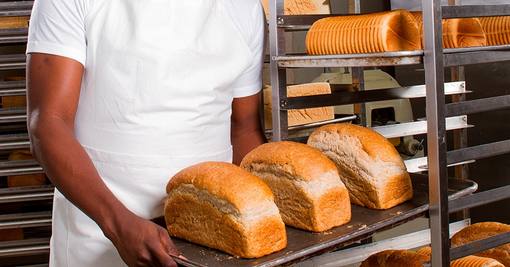Is Nigeria’s Bread price hike a result of price-fixing?

“After considering the impact of the skyrocketed prices of baking ingredients/materials, for the survival of our noble business, which is presently bleeding, the association came to the conclusion to adjust our prices by 30 percent.
The incessant increase of prices of flour and other baking materials is responsible for the decision,” Mansur Umar, National President, Association of Master Bakers and Caterers of Nigeria (AMBCN), declared in a statement last week, directing members to increase prices of bread and other bakery products by 30% due to higher raw material costs.
The increased price of raw materials, especially wheat, could be linked to the Central Bank of Nigeria recently announcing plans to place sugar and wheat on its FX restriction list. Governor Emefiele had said, “Sugar and Wheat are to go into our FX restriction list. We must work together to produce these items in Nigeria rather than import them.”
Another source of increase in raw materials cost is insecurity, which has affected local production in farming regions, making it harder for Nigerian bakers to break even on their operational costs.
But is it price fixing?
According to the US Trade Commission, “Price fixing is an agreement (written, verbal, or inferred from conduct) among competitors that raises, lowers, or stabilizes prices or competitive terms.
When consumers make choices about what products and services to buy, they expect that the price has been determined freely on the basis of supply and demand, not by an agreement among competitors. When competitors agree to restrict competition, the result is often higher prices.”
Basically, when the price of an item or product is not determined by market forces but by a union of producers, then price-fixing has happened. It is a grey area in the “ease of doing business” for most governments, as it gives a cartel power over a product.
Feyi Fawehinmi, accounting professional and author of Formation: The Making of Nigeria from Jihad to Amalgamation, tells Nairametrics that it is not only about price fixing in this scenario, but a union working to “prove its value to Nigerians.”
“In this this case, price-fixing is merely one of the byproducts of the larger nature of the industry,” Feyi said
“It is price-fixing, of course, but it’s also about a union flexing its muscles and trying to ‘prove’ its value to its members. So any member who doesn’t enforce the new price can be met with violence. It’s also a way to eliminate competition to make the union or association more attractive to join.
So overall, you can call it a protection racket which also does price-fixing on the side,” he added.
An investment analyst, who wants to remain anonymous, told Nairametrics that Nigerian bakers work with flour millers to transmit input price trends to bread prices, as bread prices reflect downward rigidities during periods of lower wheat prices but upward price flexibility during periods of higher wheat prices.
“While the combination of an increase in global wheat prices (+30-35% y/y) as well as that of other key inputs (sugar prices, palm oil etc.), alongside a weaker exchange rate, creates sufficient grounds for higher bread prices, the announcement by Nigerian bakers to coordinate a one-time price increase sits well within the definition of price-fixing. Ordinarily, bread prices should adjust in line with the trends in key inputs prices in both directions,” he said.
“The key input for bread is flour which is primarily milled from wheat. Nigeria’s tropical weather limits the prospect for large scale wheat cultivation which hovers between 50-100k MTPA, relative to annual wheat consumption at 4.9-5 million MTPA. Given high set-up costs and thin margins, the flour milling industry tends to be oligopolistic in nature with 3-4 major players. In most countries, flour millers are forward integrated with strong presence along intermediate and final consumer end via ownership of bakeries, confectionery, pasta, noodles divisions, etc.”
He adds that in Nigeria, the main intermediate segment of the value chain are unionized bakers who curtail the ability of flour millers to transmit input price trends to bread prices, citing that baker unionization and collusion prevents forward integration of flour millers into the key bread segment due fear of backlash from the unions.
“Accordingly, bread prices reflect downward rigidities during periods of lower wheat prices but upward price flexibility during periods of higher wheat prices. This ensures any gains are captured by millers and bakers with no benefit for the final consumer.”
How should bread prices be determined in Nigeria?
“In deciding how bread prices should be determined, it is important to note the maxim by Adam Smith, ‘Consumption is the sole end and purpose of all production; and the interest of the producer ought to be attended to only so far as it may be necessary for promoting that of the consumer.’ (The Wealth of Nations, 1776).
With this in mind, the solutions appear clear; while flour millers have integrated into the other non-bread segments and are able to transmit price increases through SKU adjustments and product introductions/innovations, their inability to integrate into the bread space limits, plus a unionized bakery system means prices are trapped in an upward one-way street.
The solution is to break up the baker’s union to allow unrestricted entry and uncoordinated pricing. Without the union, the industry dynamics will become much more competitive. In the advanced economies, despite the wheat price increases, bread prices only increased slightly as the industry is intensely competitive to the advantage of the consumer, as it should be,” he adds.
